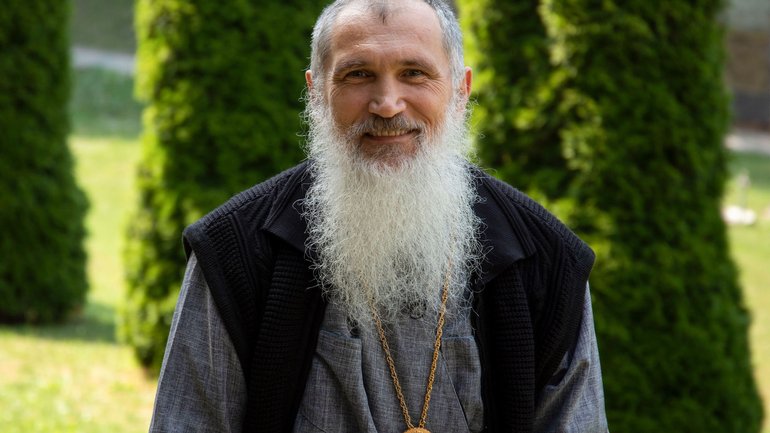"The war in Ukraine is a war of two worlds, two worldviews," - UGCC Bishop Venedykt Aleksiychuk

Bishop Venedykt Aleksiychuk, who heads the UGCC Diocese of Chicago, emphasized this in the conversation with Fr. Igor Yatsiv. The text of the conversation was released by "Dyven Svit".
"I am confident that the Russian President and all those behind him were afraid that the democratic changes, the values of human freedom and dignity that exist in Ukraine would come there as well. They feared losing the authoritarian system built by them and their predecessors and started a war with Ukraine. And one more thing: Why didn't they start a war with the Baltic states or Poland but chose Ukraine? Because Russia has originated from Ukraine, neither the Russian Church nor the Russian state has their own historical roots," His Eminence said.
He emphasizes that modern warfare has no borders: it concerns everyone.
Bishop Benedict defined three directions in this regard.
"First, God put me in this place to do something, and now I need to perform my duties even better and more zealously. Second, how can I help as a Christian? First of all, prayer. It has no boundaries and has great power. If I can't do something myself, I ask God and pray daily for peace in Ukraine. Third: volunteering, helping Ukraine in various ways. These three things are important to me: my volunteering, prayer, and work."
He spoke about assistance to Ukraine on the scale of the UGCC Diocese of Chicago:
"We realized that it is very important to adhere to the principle of subsidiarity or delegation. We told the parishes: in your environment, you know better who can be helped directly because someone in Ukraine has a sister from our parish, someone from our parishioners has a brother or husband in the armed forces of Ukraine. We saw that it was better both financially and motivationally. Therefore, we did not centralize this assistance, but on the contrary: the more parishes can help directly, the better. Some of our parishes had raised up to two or three hundred thousand dollars or more.
In Chicago itself, where there is a large Ukrainian community and a large network of public organizations, we agreed on who is responsible for medicines, who is responsible for bulletproof vests, who is responsible for humanitarian aid and displaced persons, and so on.
We have purely English-speaking parishes where there is no one from Ukraine: one of these parishes raised 80 thousand dollars, they transferred these funds to the diocese, and then we communicated at the level of chaplains in Ukraine who knew who to send this assistance to. Another level where we send aid is the head of the church and the patriarchal Curia, our exarchates in Odesa, Donetsk, and Kharkiv."









